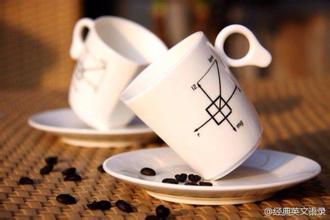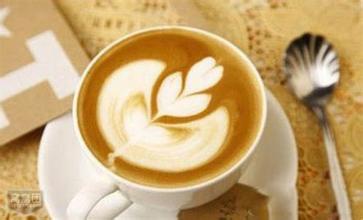Will the national drinking status of tea be replaced by coffee in the future?
Drinking coffee is a social activity for her. She and her colleagues like to sit in the coffee shop and drink and chat, while tea is more about family memories. She grew up in Fujian Province, a major tea-producing province, and in her childhood memories, the whole family used to sit together at night, make a pot of hot tea and talk about what happened during the day. So now, even a wisp of the aroma of Fujian tea can make her relive these warm family silhouettes in her mind.
Voyo, another Chinese woman who currently lives in Washington, D.C., says her taste has changed since she moved to the United States-becoming a "coffee convert", that is, a more coffee drinker.
"I liked to drink tea before I came to the United States," she said. But now I love coffee. In fact, I am becoming a heavy coffee lover more and more. I have grown from one drink a day to three drinks a day. If I don't drink it all day, I will have a headache. "
The Beijing Coffee Industry Association has published such information: the average person in China drinks five cups of coffee per year. This figure is well below the world average of 240 cups a year. But the association predicts that the amount of coffee consumed by Chinese people will increase by 15% a year in the future.
Ms. Su is from China. She has lived in the United States for eight years. Before that, she lived in Italy for two years. VOA interviewed her at a Vietnamese noodle restaurant near Washington, D.C. Ms. Su said her love for tea is absolutely loyal, but added that this may not be the case for the younger generation in China today. VOA reporter Anna asked: "do you prefer coffee or tea?" Sue said, "I love tea." "do you think Chinese people like coffee more and more?" "I think they must like coffee more and more, after all, the younger generation likes coffee," Su said. "
Many young Chinese use coffee more as a social drink. Ms. Lin lives in the United States, but she comes from Fujian, a famous tea village in China. She used to drink only tea in China, but now she drinks both. "I would like to say that I absolutely like tea when I come back to China," Ms. Lin said. "but you know, under the influence of Starbucks and various brands of coffee, I like coffee and tea equally.
According to a survey conducted by the Voice of America (VOA), more and more Chinese are turning to another drink-coffee. Coffee has become more and more popular among Chinese people living in foreign countries and big cities at home. At the same time, it is also a popular crop in the mountains of southern Yunnan. In big cities like Beijing and Shanghai, coffee shops seem to be everywhere in the streets. This kind of coffee operates coffee brands from all over the world, such as Starbucks in the United States, coffee from Korea to accompany you and so on. VOA interviewed some Chinese women in the United States to find out if they had changed their drinking habits after moving to the United States. the questions are as follows:
Coffee or tea? What kind of drink do you prefer?
Tea drinking has long been condensed into culture and tradition in many Asian countries, such as China and Japan. But is that changing? Do young people in Asia now prefer coffee to tea?

Important Notice :
前街咖啡 FrontStreet Coffee has moved to new addredd:
FrontStreet Coffee Address: 315,Donghua East Road,GuangZhou
Tel:020 38364473
- Prev

Five U.S. Caffeine Powders Indicated as Deadly Risk
According to Time magazine, the US Food and Drug Administration (FDA) issued a warning letter to five pure caffeine powder distributors on the 1st of this month, believing that these products have health risks and even cause death. Reported that the move also reflects the relevant agencies in the United States began to pay attention to the intake of such stimulants by citizens and curb the supply of pure raw materials. It was reported that a warning had been received
- Next

Hand coffee rotary water injection and central water injection-rotating coffee cup rides
Hand coffee rotary water injection and central water injection-rotating coffee cup amusement equipment bubbles are mainly due to the fact that the coffee is relatively fresh and contains more carbon dioxide, so it will produce a large amount of carbon dioxide emissions. Therefore, the formation of large bubbles, because carbon dioxide is not allowed to water at atmospheric pressure, so there is no need to consider the problem of bubbles. If your opponent likes to make coffee, you can.
Related
- Beginners will see the "Coffee pull flower" guide!
- What is the difference between ice blog purified milk and ordinary milk coffee?
- Why is the Philippines the largest producer of crops in Liberia?
- For coffee extraction, should the fine powder be retained?
- How does extracted espresso fill pressed powder? How much strength does it take to press the powder?
- How to make jasmine cold extract coffee? Is the jasmine + latte good?
- Will this little toy really make the coffee taste better? How does Lily Drip affect coffee extraction?
- Will the action of slapping the filter cup also affect coffee extraction?
- What's the difference between powder-to-water ratio and powder-to-liquid ratio?
- What is the Ethiopian local species? What does it have to do with Heirloom native species?

